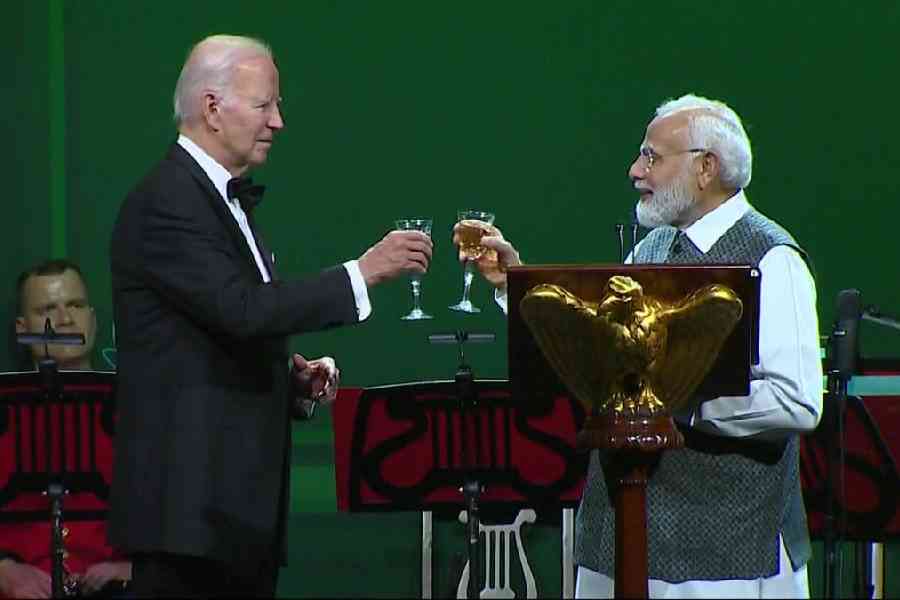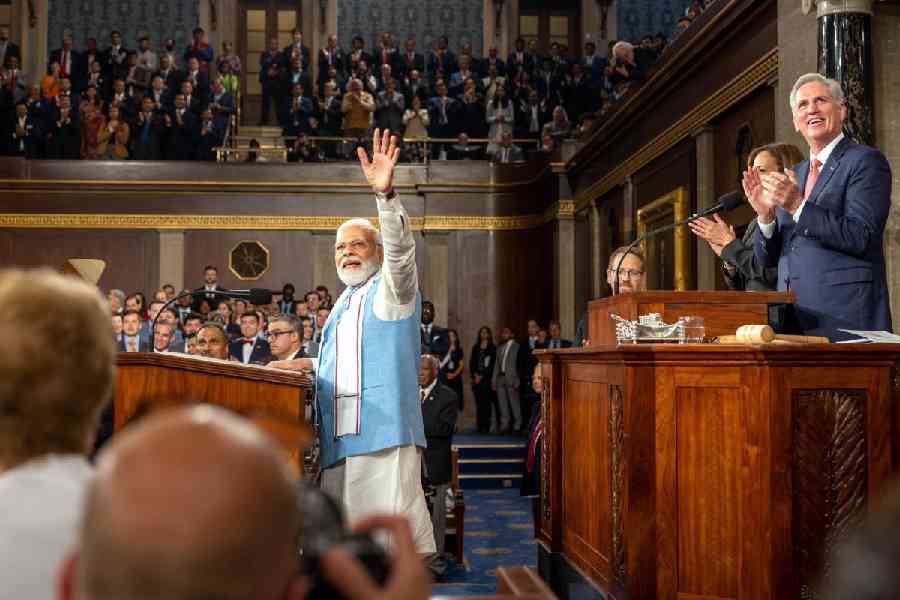Optics apart, India and the US turned a corner in their bilateral relationship during Prime Minister Narendra Modi’s visit to the US this week with the materialisation of a significant technology transfer that Russia has been extending to India from the Soviet era.
Though the regime of high-technology denial to India began to be relaxed about a decade ago on the Barack Obama-Manmohan Singh watch, the memorandum of understanding signed by General Electric Aerospace with Hindustan Aeronautics Limited on Thursday is being hailed as a landmark one.
A White House fact sheet on the visit said: "The United States and India welcome a groundbreaking proposal by General Electric (GE) to jointly produce the F414 Jet Engine in India. GE and Hindustan Aeronautics Limited have signed an MoU, and a manufacturing licence agreement has been submitted for Congressional notification. This trailblazing initiative to manufacture F-414 engines in India — the first of its kind —will enable greater transfer of US jet engine technology than ever before."
Briefing media persons on the visit on Friday, foreign secretary Vinay Mohan Kwatra said: "Technology featured very prominently in the discussions... and not technology just in a single sub-domain or limited segmentation of it, but technology cooperation across most of the ecosystem that pertains to it, which would include technology transfer, technology trade — trade in technology products, technology services. This would also include working together to create research, co-produce and work on developing technologies across different sectors… it would also include technology capacity-building cooperation between the two countries."

Modi and Biden raise a toast during the State Dinner at the White House. PTI
For decades, the US has denied critical technologies to India, giving the erstwhile Soviet Union and later Russia the edge in bilateral relations with New Delhi. Moscow has been transferring high-end military technology to New Delhi for decades, the earliest example being the co-production of MiG-21 in India in 1962. This aspect of the India-Russia relationship is often highlighted by Moscow as the US attempts to wean India away from its reliance on Russia.
As for the discussions on trade, the joint statement said: "Underscoring the willingness and trust of both countries in resolving trade issues, the leaders welcomed the resolution of six outstanding WTO disputes between the two countries through mutually agreed solutions as well as their understandings on market access related to certain products of significance to the bilateral trade relationship."
The two sides are also looking at reconvening the India-US Trade Policy Forum before the end of 2023 to further enhance the trade relationship by addressing concerns and identifying further areas for engagement.
"India highlighted its interest in the restoration of its status under the US Generalised System of Preferences (GSP) programme, which could be considered in relation to eligibility criteria determined by the US Congress. The leaders supported intensifying the work to advance progress on issues related to the eligibility criteria. Prime Minister Modi also expressed India’s interest towards being recognised as a Trade Agreements Act-designated country by the United States to further enhance the integration of both economies and to further promote trade and investment between two countries," the joint statement said.
Elaborating on the issue of GSP — which was withdrawn in 2019 after 45 years — Kwatra pointed out that it is a congressional matter. "It is not an issue, which is entirely between the two governments. There are elements of it, which pertain to tariff fixation and the trade quantum that takes place under those tariff lines, but it’s broadly a much larger issue.
"It’s an issue which is an important priority for us... and we believe that the segments of the industry which benefit from the GSP do make important valuable contributions to both our economies, and we will continue to take this up very regularly and very intensely with the US Congress, so that these benefits can be restored."










